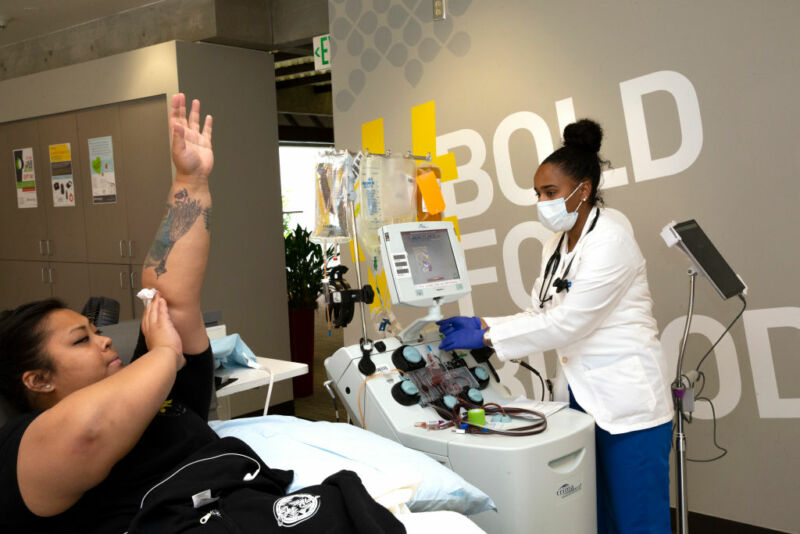Antibody testing suggests immune response post-COVID is very variable

Enlarge / Melissa Cruz elevates her arm after donating COVID-19 convalescent plasma as phlebotomist Jenee Wilson shuts down a machine. (credit: Karen Ducey / Getty Images)
How much of an immune response does a SARS-CoV-2 infection produce? It's a critical question for all sorts of reasons. To begin with, long-lasting immunity, either through an infection or a vaccine, is critical for any hope of returning the world to something that resembles its pre-pandemic state. It's also essential to understanding how safe people who have recovered from infections are and how they can behave in the face of continued outbreaks and spread.
But there are also more subtle public policy issues. Since testing wasn't generally available at the time of many outbreaks, we'll need antibody tests to figure out who was actually exposed. And the accuracy of those tests-which has been called into question-can have a big influence on studies of the pandemic's progression.
A bunch of recent draft papers have looked at the sort of immune response we're seeing in patients who have cleared the virus after testing positive for it. And the results suggest that it's very variable-as is the quality of the tests that detect it. (We'll remind you that pre-publication documents carry some quality risks.)
Read 13 remaining paragraphs | Comments